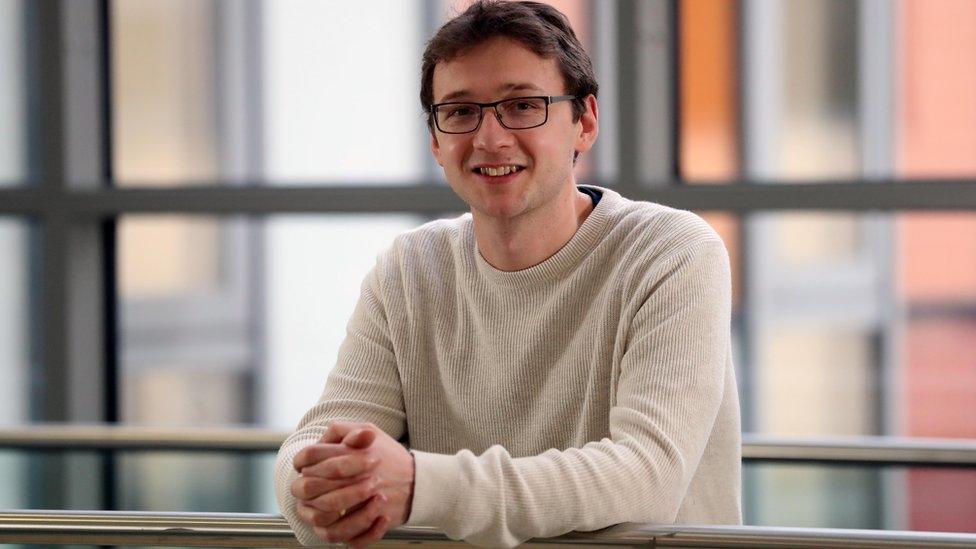Schizophrenia: Cardiff Uni study brings new drugs 'a step closer'
- Published

Researchers have identified new gene mutations which could shed fresh light on the biological causes of schizophrenia.
The Cardiff University team analysed genetic data from 3,400 families affected by the mental illness, in the largest study of its kind.
The mutations were found in just three in 3,000 people with the condition.
Dr Elliott Rees, of Cardiff University, said it "potentially brings us a step closer" to new drugs.
Scientists have already pinpointed specific genes which can predispose people to neuropsychiatric disorders, such as autism and developmental delay.
This latest study, published in the journal Nature Neuroscience, external, looked specifically at those "high-risk" genes and focused on the mutations in one in particular, known as "SLC6A1".
The results pointed towards alterations in how brain cells communicate as a potential cause of schizophrenia, the researchers said.
The ultimate goal is to develop new therapies for the condition, which affects about 1% of the world's population - and about 600,000 people in the UK.

What is schizophrenia?
Schizophrenia is a severe long-term mental health condition. It causes a range of different psychological symptoms.
Doctors often describe schizophrenia as a type of psychosis. This means the person may not always be able to distinguish their own thoughts and ideas from reality.
Symptoms can include hallucinations, delusions, muddled thoughts and a loss of interest in everyday activities.
Source: NHS, external


Dr Elliott Rees, of Cardiff University, is originally from Swansea
Dr Rees, of the Medical Research Council Centre (MRC) for Neuropsychiatric Genetics and Genomics, has been working on the study for three years.
He said it was hoped it may help "identify the key genes involved" and provide "molecular targets for the development of novel drugs".
And Prof Sir Michael Owen, former director of the MRC Centre and one of the study's authors, said the findings also suggested new gene mutations could also increase the risk of other disorders, such as autism and development delay.
- Published18 September 2017

- Published9 January 2019

- Published2 January 2020

- Published25 October 2019
